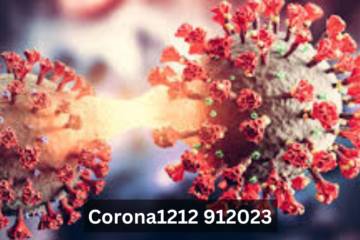Psychological trauma results from events that disrupt a person’s sense of safety. Stressors inflict mental and emotional damage that impairs a person’s functioning. Professional intervention aims to help patients heal from the effects of traumatic experiences. Here are some stressors that could cause psychological issues and how a therapist can help:
Navigating Childhood Abuse
Childhood abuse inflicts psychological agony and has lasting emotional consequences. Neglect denies children access to the love, security, and care necessary for healthy development. Abuse violates their innocence, leading to children blaming themselves and believing they do not deserve better treatment. Abuse at home destroys trust and forms attachment styles that lead to challenges with relationships in adulthood. Therapists use informed care strategies to help patients process painful childhood experiences and build healthy coping mechanisms. Counseling enables survivors to rebuild self-worth that has been eroded by abuse. With professional support, patients can heal from their disturbing past and build positive relationships in the future.
Experiencing Domestic Violence
Intimate partner violence and repeated abuse in a relationship creates emotional and psychological distress. Victims may experience fear, anxiety, shame, and self-doubt from verbal, physical, and psychological attacks. Domestic violence traps victims in cycles of abusive relationships. Therapists provide a safe space for clients to disclose their experiences and validate them. These professionals offer tips for safety planning, rebuilding self-esteem, and processing unhealthy dynamics ingrained by the abuser. Some counselors guide survivors in creating plans to exit abusive situations or extract their children from harassing partners.
Addressing Combat Stress
Combat and military experiences can result in stress and post-traumatic stress disorder (PTSD). During deployments, service members engage in life-threatening combat, witness killings, and survive bombings. PTSD may intensify after an abrupt transition from war zones to civilian life. Hyper-vigilance, anger, anxiety, and flashbacks may prevent individuals from forming healthy relationships. Therapy sessions help veterans process distressing memories and regain control over PTSD symptoms. Counselors guide patients through the process of drawing positive meanings from past experiences in combat.
Coping With Loss
Sudden loss inflicts emotional wounds that can disrupt a person’s life. When death arises from an accident, homicide, or suicide, the trauma impact intensifies. The shock of abrupt separation from loved ones may compound feelings of grief, anger, and confusion. Loss counseling guides survivors in processing distressing emotions and reconstructing identities fractured by death.
Recovering From Sexual Assault
Sexual assault causes fear, shame, and violations of trust in some survivors. Many survivors face disassociation or memory loss as the psyche shields itself from remembering the assault. Therapists validate survivors’ experiences and help them process emotions to prevent long-term mental health issues. Counseling practices help clients regain control over their symptoms to improve their safety, relationships, and inner narratives.
Managing Medical Experiences
Medical diagnoses, invasive procedures, hospital stays, and chronic health conditions may all cause trauma. Patients with health trauma face threats to their well-being, comfort, bodily control, and financial stability. Therapists can help patients process physical symptoms and complex emotions surrounding their medical experiences. Counseling enables patients to regain a sense of safety, control, and confidence in their capacity to overcome physical and financial adversity.
Start Your Trauma Healing Journey Today
Talk therapy may help you gain insights into your behavior and health by discussing past experiences and their lasting effects. Therapists assist with establishing positive thinking patterns and strategies for avoiding triggers and healing from trauma. They may also connect you with specialized support groups for trauma survivors. Contact a licensed therapist today to schedule an appointment and begin your healing journey.



